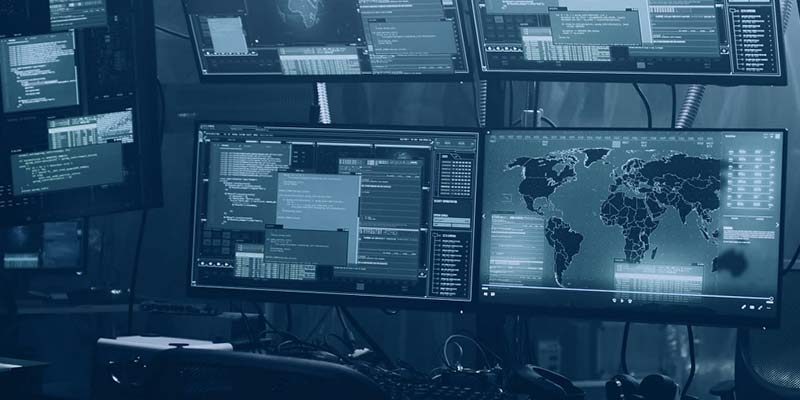- India
- May 20
I4C introduces e-Zero FIR in Delhi
• The Indian Cyber Crime Coordination Centre (I4C), which comes under the Ministry of Home Affairs, has introduced the new e-Zero FIR initiative to nab cybercriminals with unprecedented speed.
• It is now a pilot project for Delhi.
• The new system will automatically convert into FIRs cyber financial crimes filed on the National Cybercrime Reporting Portal (NCRP) and helpline number 1930, initially above the threshold limit of Rs 10 lakh.
• Union Home Minister Amit Shah said the process of issuing FIRs electronically, irrespective of territorial jurisdiction, will soon be extended to the entire nation.
• This initiative will enable easy restoration of money lost by victims and facilitate punitive action against cybercriminals.
• It leverages the provisions of the recently introduced criminal laws.
What is the process for e-Zero FIR?
• The newly introduced process involves integration of I4C’s National Cybercrime Reporting Portal (NCRP), Delhi Police's e-FIR system and National Crime Record Bureau’s (NCRB) Crime and Criminal Tracking Network & Systems (CCTNS).
• Now, complaints related to financial losses above the threshold limit of Rs 10 lakh made to NCRP and helpline number 1930 will automatically lead to registration of a Zero FIR with the e-crime police station of Delhi. This will be immediately routed to the territorial cybercrime police stations.
• Complainants can visit the cybercrime police station within three days and get the Zero FIR converted into a regular FIR.
• The Delhi Police and the I4C have worked together to put in place a process for registration of cases in accordance with the new provisions of Section 173(1) and 1(ii) of Bhartiya Nagrik Suraksha Sanhita (BNSS).
• This process of issuing FIRs electronically irrespective of territorial jurisdiction (e-Zero FIR) will initially start in Delhi as a pilot. Subsequently, it will be extended to other states and Union Territories.
• The e-Crime Police Station of Delhi has been notified for the registration of e-FIRs and transferring them to jurisdictional police stations in cybercrime complaints of a specified nature reported on NCRP.
Indian Cyber Crime Coordination Centre (I4C)
• Indian Cyber Crime Coordination Centre (I4C) is an initiative of the Ministry of Home Affairs to provide a national platform for tackling cybercrime in a coordinated and comprehensive manner.
• I4C is working towards its vision to create an effective framework and ecosystem for prevention, detection, investigation, and prosecution of cybercrime.
• I4C aims to strengthen the capabilities of law enforcement agencies (LEAs) and improve coordination among various stakeholders and LEAs.
• It is continuously working for the enhancement of the nation’s technical capabilities to deal with cybercrime and to further strengthen the operational architecture and coordination among LEAs and other stakeholders.
• The focus of I4C has been on tackling all the issues related with cybercrime for all citizens, such as improving coordination among various central and state agencies, driving change in India’s overall capability to tackle cybercrime and facilitating capacity development of LEAs to better respond to cybercrime.
• I4C also focusses on strengthening the fight against cybercrime, committed against women and children.
• Ease of filing cybercrime related complaints has been improved with the various initiatives of NCRP.
• I4C has assisted states/UTs in capacity building of police officers and judicial officers in the areas of cyber forensics, cyber hygiene, cyber-criminology, etc.
Components of I4C:
i) National Cybercrime Threat Analytics Unit for reporting threats pertaining to cybercrimes at regular intervals.
ii) National Cybercrime Reporting Portal to report various cybercrime complaints by citizens at all India level on a common platform on 24x7 basis from “anywhere, anytime”.
iii) National Cybercrime Training Centre to impart training to government officials, specially state law enforcement agencies.
iv) National Cybercrime Research & Innovation Centre to carry out research for development of indigenous tools for prevention of cybercrimes.
v) Platform for Joint Cyber Crime Coordination Teams for coordination, sharing of modus operandi of cybercrimes, data/information among states/UTs LEAs.
vi) National Cybercrime Ecosystem Management Unit for creating mass awareness in cyber hygiene for prevention of cybercrimes.
vii) National Cybercrime Forensic Laboratory (Investigation) Ecosystem for helping LEAs in cyber forensics investigation.
Manorama Yearbook app is now available on Google Play Store and iOS App Store


